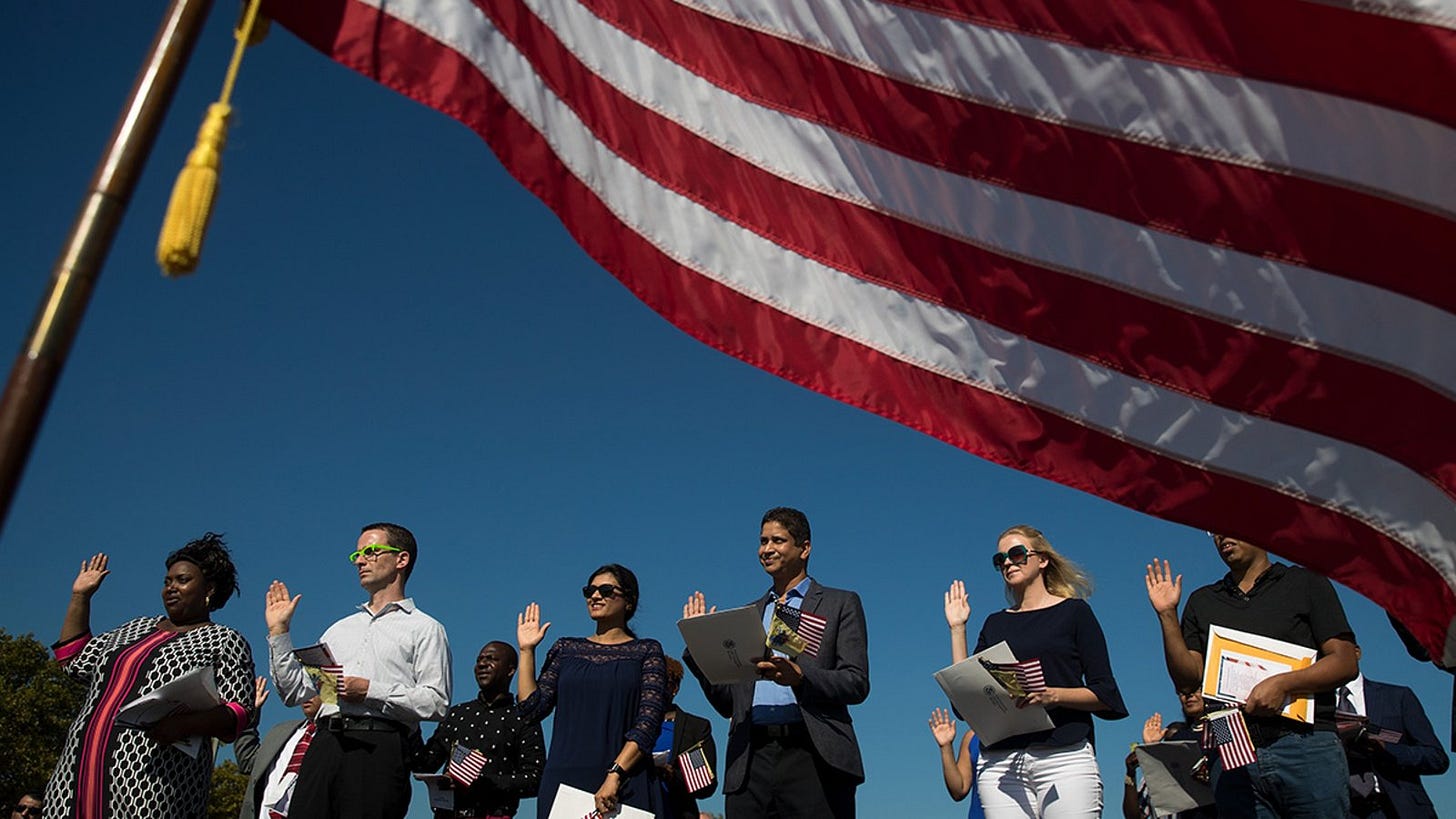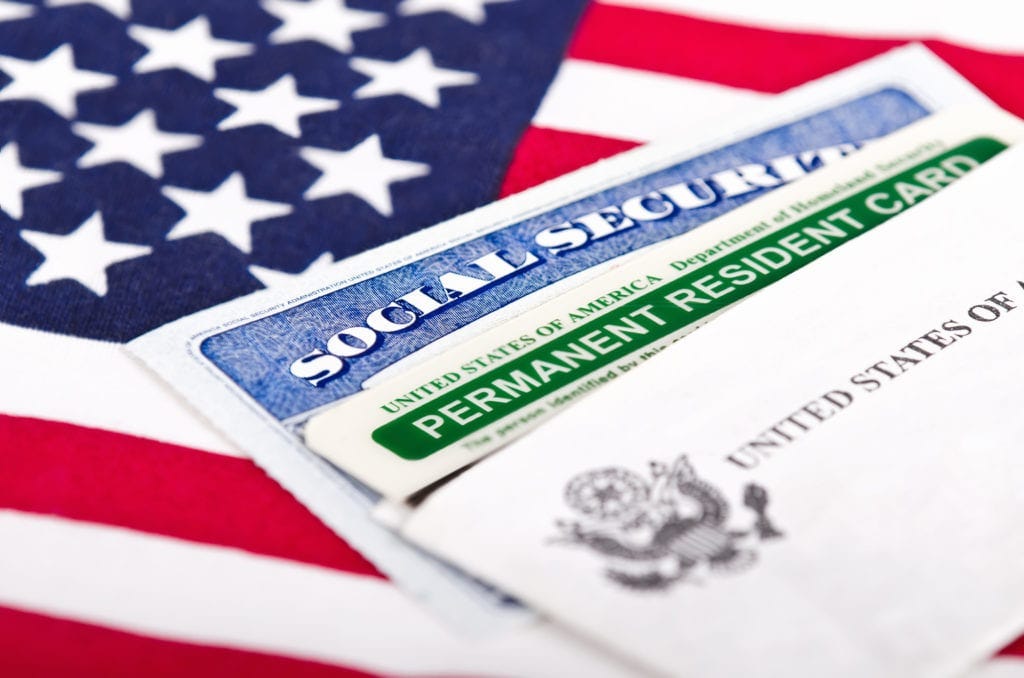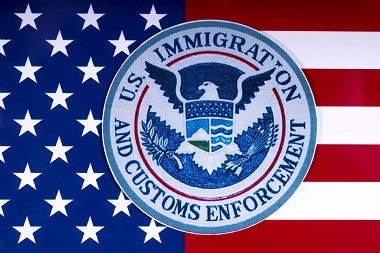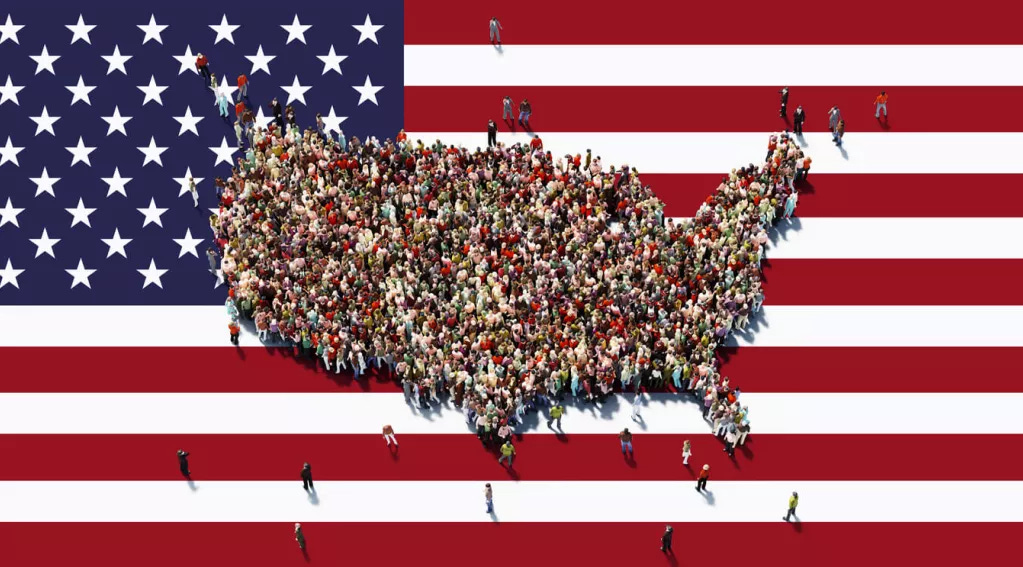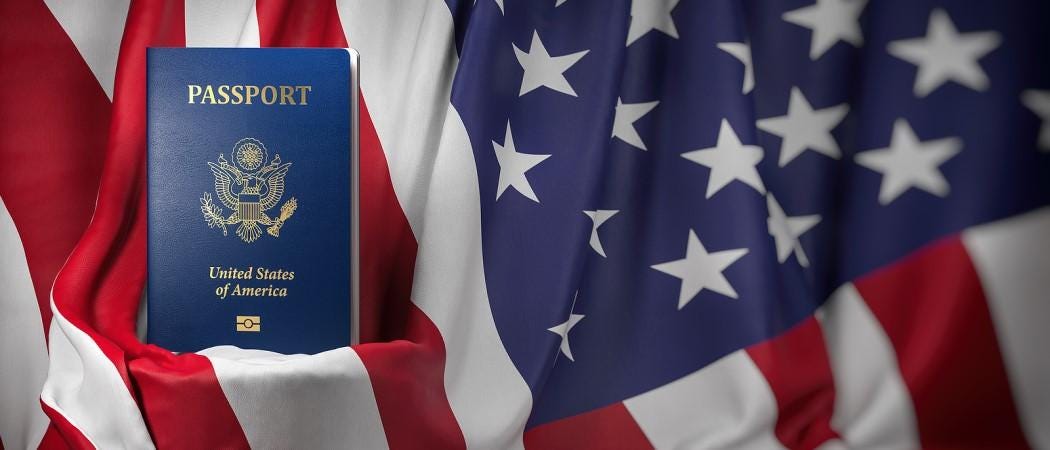The Dis-United States: Immigration Without Assimilation
Immigration is a Biblical Moral Responsibility
The arrest of Guyanese national Ian Andre Roberts, the now-former superintendent of Des Moines Public Schools, reads like the plot of a bad satire that no one dares to laugh at. According to Immigration and Customs Enforcement, Roberts overstayed a student visa issued in 1999, was living under a deportation order from 2024, and had a prior weapons charge. Yet he somehow rose to lead one of Iowa’s largest school districts. When ICE agents approached him, he fled in his car, abandoned it in the woods, and was later found with a loaded handgun, three thousand dollars in cash, and a hunting knife. It sounds like the script of a movie rejected by Netflix for being too implausible.
The moral of this story is not just bureaucratic incompetence. It is the cultural decay that allows such incompetence to be tolerated. Roberts’s case is the product of a national confusion about what immigration actually means. Immigration is not an entitlement or a right detached from duty. It is a moral decision that requires respect for law, gratitude toward one’s host, and a willingness to assimilate into the shared life of the nation.
When I immigrated to the United States, I did so freely. By that choice, I accepted the laws, ideals, and customs of the land. I bound myself to its order and vision. Becoming an American is not an economic arrangement or a convenience of geography. It is a covenantal act. One enters into the moral and civic life of a people. That requires effort, study, and assimilation. This is why I study the history, founding documents, and philosophical roots of the United States. To live here rightly is to understand what this nation stands for and why it was founded.
The Founders knew that a republic survives only when its members share a common moral and civic identity. John Jay, in Federalist No. 2, described America as “one united people, descended from the same ancestors, speaking the same language, professing the same religion, attached to the same principles of government.” He was not claiming genetic purity or cultural isolation. He was stating an obvious truth: national cohesion depends on shared principles. When unity is abandoned, chaos follows.
The Founders’ understanding was grounded in the natural law tradition, which recognizes that order in society reflects the moral order of the universe. Thomas Aquinas wrote that a law is just only if it conforms to reason and the natural law. When laws or practices deviate from this, they cease to be laws at all. By that measure, a society that tolerates lawlessness under the pretense of compassion becomes a society of contradictions. Roberts’s case is one such contradiction.
The modern narrative of immigration has replaced assimilation with sentiment. It tells us that diversity is the nation’s strength. The evidence says otherwise. A society cannot thrive on division. Diversity without unity is disintegration. The phrase “diversity is our strength” functions more as a moral sedative than a serious statement of civic philosophy. George Washington, in his Farewell Address, warned Americans to preserve the bonds that unite them: shared language, manners, and principles. He knew that unity is the precondition for liberty.
The Roberts affair demonstrates what happens when sentiment overrules reason. A man living illegally in the country, carrying weapons, and with a record of defiance of the law was allowed to run an educational system that shapes young minds. Bureaucratic negligence made it possible, but cultural relativism made it acceptable. We have become a nation that hesitates to enforce its laws for fear of appearing judgmental. When virtue is replaced by public relations, the moral center collapses.
History has already provided warnings. The late Roman Empire faced a similar problem. Its borders became porous, not from external invasion but from internal confusion about what Rome meant. Loyalty to Rome gave way to loyalty to tribes and factions. The idea of citizenship became diluted. When everyone was Roman, no one was. The empire that once unified the Mediterranean world dissolved into local chaos.
Modern Europe repeats the same pattern. Germany’s open-door policy in 2015, initially hailed as a humanitarian victory, has produced social tension and parallel societies that resist integration. Violent crime rose sharply. Some communities now operate by clan law rather than civil law. The lesson is simple: societies that refuse to require assimilation end up managing fragmentation.
The United States is approaching that same precipice. The ideology of multiculturalism insists that all cultures are equal and that expecting immigrants to adopt American values is a form of bigotry. The reality is that cultures embody different moral visions, and not all of them are compatible with the principles of ordered liberty. When immigrants are encouraged to retain the customs and loyalties of their former homelands while rejecting the moral structure of their new one, they cease to be immigrants and become colonists of a different kind.
Assimilation, properly understood, is not about erasing identity. It is about loyalty. To assimilate is to acknowledge that one’s new home possesses a moral order worthy of respect. It is to recognize the law of the land, the common good, and the foundational vision that binds citizens together. That vision in America is not ethnic but philosophical. It is built on the conviction, drawn from the natural law and the Judeo-Christian tradition, that man’s rights come from God, not government, and that liberty cannot exist without virtue.
The Church’s teaching supports this view. The Catechism of the Catholic Church states that while nations should welcome foreigners, they also have the right to regulate immigration according to the demands of the common good. Immigrants, it adds, have the duty to respect the laws and traditions of their host country. The virtue of hospitality does not erase the necessity of justice. Charity without order becomes chaos, and mercy without truth becomes sentimental tyranny.
Scripture provides a similar framework. The Old Testament commands Israel to welcome the stranger, but always within the covenantal order of the Law. The sojourner who dwelt among Israel was to observe the same moral code as the native-born. The inclusion of the foreigner was conditional on shared obedience. The covenant was not negotiable. In the New Testament, the same principle appears in the moral vision of the Church: one body, many members, but united in Christ. Diversity is subordinated to truth.
The United States once operated under a similar logic. Immigrants of earlier generations were not asked to erase their heritage but to align their loyalties. They learned English, embraced civic education, and swore allegiance to the Constitution. They became Americans. Today, that expectation is seen as oppressive. The irony is that by rejecting assimilation, we deny immigrants the very dignity that integration brings. To assimilate is to belong. To refuse is to remain perpetually displaced.
The Roberts case reveals how far we have drifted from that understanding. It is not simply a failure of enforcement. It is a moral failure. It is the predictable result of treating citizenship as an accessory rather than a vocation. Citizenship is not a costume one wears for economic convenience. It is a moral identity. To become an American is to enter a moral order that demands loyalty to truth and law.
The Founders never intended for the republic to be a collection of isolated identities. They envisioned a moral community grounded in shared principles. Benjamin Franklin once warned that the Constitution would yield a republic “if you can keep it.” Keeping it requires virtue, vigilance, and a shared moral horizon. Without these, no law or border can preserve a nation.
The Roberts story might appear as an isolated case of negligence, but it reflects a deeper confusion about what a nation is for. The modern state treats immigration as a bureaucratic transaction rather than a covenantal act. The natural law reminds us that a nation is not a marketplace. It is a moral community ordered toward the common good. The Founders called this the pursuit of happiness, not pleasure. Happiness meant the flourishing of a virtuous people living under just laws.
Scripture affirms the same truth in more ancient language. The prophet Isaiah warned that nations that abandon righteousness invite ruin. “Your princes are rebels and companions of thieves. Everyone loves a bribe and runs after gifts. They do not defend the fatherless, and the widow’s cause does not come to them” (Isaiah 1:23). A government that tolerates lawlessness under the guise of compassion commits the same error. It mistakes permissiveness for mercy.
Christians and social conservatives must recover the moral language that has been lost. We must teach that the law of God is the foundation of every just society, that liberty requires moral discipline, and that compassion without justice destroys both giver and receiver. Borders, laws, and civic expectations are not acts of cruelty. They are acts of charity ordered toward peace.
The Book of Proverbs states, “Righteousness exalts a nation, but sin is a reproach to any people.” A nation that refuses to uphold righteousness will not stand, no matter how loudly it preaches inclusion. The issue is not whether America welcomes immigrants. The issue is whether America still remembers what kind of people it wants them to become.
The Roberts episode will fade from the headlines soon enough. Bureaucracies will issue statements, committees will hold hearings, and moralists will scold anyone who dares to mention the obvious. But the deeper problem will remain. We are suffering from too little immigrant assimilation.
If America is to survive its current confusion, it must rediscover that unity is its true strength. Unity in law, unity in vision, unity in moral truth. Without that, the republic becomes an administrative zone, not a nation. The solution is not another slogan but a return to reality: the natural law written on the heart, the Constitution written on parchment, and the command of Christ written in eternity. A nation that forgets these will soon forget itself.



